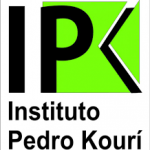Announcement
Every year, insects and other vectors transmit infectious pathogens to more than a trillion people, which causes more than 700 000 deaths worldwide; therefore, the World Heath Day celebrated on April 7, 2014 was dedicated to insect-borne diseases, under the slogan “SMALL BITE: BIG THREAT”. The increasing uncontrolled urbanization, other environmental changes, the increase of travels worldwide, among other factors, have contributed to the emergence of diseases, as shown in 2016 with the onset of the great pandemic of yellow fever in Angola and cases in other countries, as well as the rapid spread of the Zika and Chikungunya viruses, and the increase of dengue cases in the American continent. On the other hand, the incidence of malaria was estimated to decrease globally, between 2010 and 2016, from 76 to 63 cases per thousand in risk populations. Other insects are also vectors, either mechanical or biological ones, of bacteria, viruses, protozoa and helminths, as well as rodents and individuals from malacological fauna, which cause the so-called neglected or forgotten diseases, with reports are still many in different geographical areas. Within this context, integrated vector control is included as a decisive process for managing population of vectors, with the aim of reducing or interrupting vector disease transmission. Such management includes usage of diverse interventions, sometime in combination or synergically; collaboration within the health sector and with other public sectors with a repercussion in vector reproduction and proliferation sites; active community involvement; a legal public health framework; the rational usage of insecticides; as well as good action practices.
In spite of the importance of integrated vector control, this discipline receives sometimes little financial support worldwide, with some priority oriented to diagnosis, vaccines, etc., developed in the long-term. This situation is manifested in the absence of laboratories, insectariums, equipment, adequate formation of human resources, little entomologic surveillance and vector control assessment, which includes monitoring and managing insecticide resistance, in accordance with programs established in some countries; apart from the lack of integration at several levels for vector prevention and control in situations of epidemics, outbreaks, and even in low-transmission periods. To facilitate understanding of the problem and look for potential solutions that contribute with improvement in this field of public health, since each day the number of cases of vector-borne diseases is higher, mainly by insects, the Pan American Health Association/World Health Organization (OPS/OMS), Pedro Kourí Institute of Tropical Medicine as PAHO/WHO collaborating center, the Cuban Society of Microbiology and Parasitology, the Ministry of Public Health of the Republic of Cuba, among other institutions and organizations, are pleased to announce you that, from August 29 to September 9, 2022, the First International Course of Integrated Vector Control (IVC-2022) will be held.

